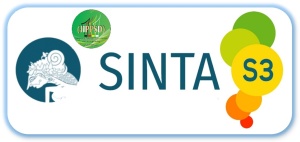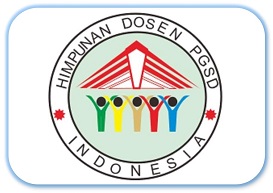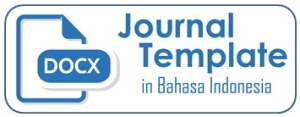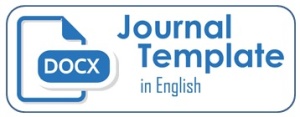Meningkatkan Aktivitas, Berpikir Kritis, dan Hasil Belajar Matematika Menggunakan Model INTAN di Kelas V SDN Labat Muara
 ), Jono Rahmad Maulana(2),
), Jono Rahmad Maulana(2), (1) Universitas Lambung Mangkurat, Kota Banjarmasin
(2) Universitas Lambung Mangkurat, Kota Banjarmasin
 Corresponding Author
Corresponding Author
DOI : https://doi.org/10.24036/jippsd.v7i1.116907
Full Text:
 Language : en
Language : en
Abstract
The problems contained in this study are students who have difficulty in mathematics content, especially in the cube volume material due to the lack of variation in learning, students have difficulty in absorbing material, and passive students in learning activities. This research is a CAR with 3 meetings, where the purpose of this study is to determine the activities of educators, students' critical thinking skills and learning outcomes through the application of the INTAN model. The results show an increase, namely for educator activities to achieve a maximum score with a percentage of 100%, with a very good category. For activities, students get percentages from 33.33% to 100% with Active and Very Active categories, critical thinking skills get percentages from 46.67% to 100% and learning outcomes from 20.00% to 100%. It can be concluded that the INTAN model is able to make students active and their learning outcomes increase both individually and as a whole.
Keywords
References
Fahmia, H., Karjiyati, V., & Dalifa, D. (2019). Pengaruh Model Guided Inquiry terhadap Hasil Belajar Siswa pada Pembelajaran Matematika Siswa SD Kota Bengkulu. JURIDIKDAS: Jurnal Riset Pendidikan Dasar, 237-244.
Fisher, A. (2011). Critical Thinking An Introdution Second Edition. United Kingdom: Cambridge University Press.
Hamalik, O. (2016). Proses Belajar mengajar. Jakarta: PT Bumi Aksara.
Hardina, S. (2019). Upaya Meningkatkan Hasil Belajar Siswa Dalam Pembelajaran Matematika Melalui Model Teams Games Tournament (TGT). BASIC EDUCATION, 1-434.
Kemendikbud. (2016). Panduan Pembelajaran Matematika dan Pendidikan Jasmani, Olahraga Dan Kesehatan (PJOK). Jakarta: Kemendikbud.
Kowiyah. (2012). Kemampuan Berpikir Kritis. Jurnal Pendidikan Dasar Vol. 3 No. 5.
Kunandar. (2012). Langkah Mudah Penelitian Tindakan Kelas Sebagai Pengembangan Profesi Guru. Jakarta: PT. Raja Grafindo Persada.
Prastiwi, D., Haryani, S. H. S., & Lisdiana, L. (2018). The Effectiveness of Guided Inquiry with Mind Mapping to Improve Science Process Skills and Learning Motivation. Journal of Primary Education, 7(2), 195-203.
Putra, S. R. (2016). Desain Belajar Mengajar Kreatif Berbasis Sains. Jogjakarta: DIVA Press.
Rusman. (2014). Model-Model Pembelajaran (Mengembangkan Profesionalisme Guru). Jakarta: Raja Grafindo Persada.
Salahudin, A. (2012). Filsafat Pendidikan. Bandung: CV Pustaka Setia.
Slavin, E. R. (2015). Cooperative Learning: Teori Riset dan Praktek. Bandung: Nusa Media.
Syam, A. P., Akib, I., & Syamsuddin, A. (2020). The Application Of Cooperative Learning Model Of Team Assisted Individualization (TAI) Based Manipulative Media On Topics “Shape” Of Class Vi Elementary School Of Tombolok Gowa. Daya Matematis: Jurnal Inovasi Pendidikan Matematika, 7(3), 317-327.
Sugiyono. (2013). Metode Penelitian Kuantitatif, Kualitatif dan R&D. Bandung: Alfa Beta.
Sulisthia, P. S. (2014). Penerapan Model Inkuiri Terbimbing Berbantuan Media Animasi Komputer Untuk Meningkatkan Motivasi Dan Hasil Belajar Matematika Siswa Kelas V Di SD Negeri 2 Manukaya Tahun Pelajaran 2013/2014.
Suriansyah, A., & Aslamiah. (2018). Teachers Job Satisfaction on Elementary School: Relation to Learning Environtment. The Open Psychology Journal.
Susanto, Ahmad. 2013. Teori Belajar dan Pembelajaran di Sekolah Dasar. Jakarta: Kencana Prenadamedia Group.
Zanthy, L. S. (2016). Pengaruh Motivasi Belajar Ditinjau dari Latar Belakang Pilihan Jurusan Terhadap Kemampuan Berpikir Kritis Mahasiswa di STKIP Siliwangi Bandung. Jurnal Teori dan Riset M
 Article Metrics
Article Metrics
 Abstract Views : 584 times
Abstract Views : 584 times
 PDF Downloaded : 580 times
PDF Downloaded : 580 times
Refbacks
- There are currently no refbacks.

This work is licensed under a Creative Commons Attribution 4.0 International License.







